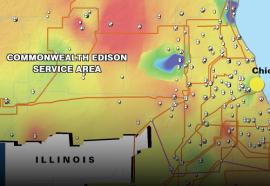Coal's Raw Deal
The bias in RTO markets, and how FERC might fix it.
RTO practice creates less risk and uncertainty over the nominal short-term wholesale price of power, but more risk and uncertainty over the long-term cost of transmission. That spells trouble for the coal-fired plant, sited far off at the mine mouth, needing long-haul transmission over a long-enough term to pay back the capital costs.









